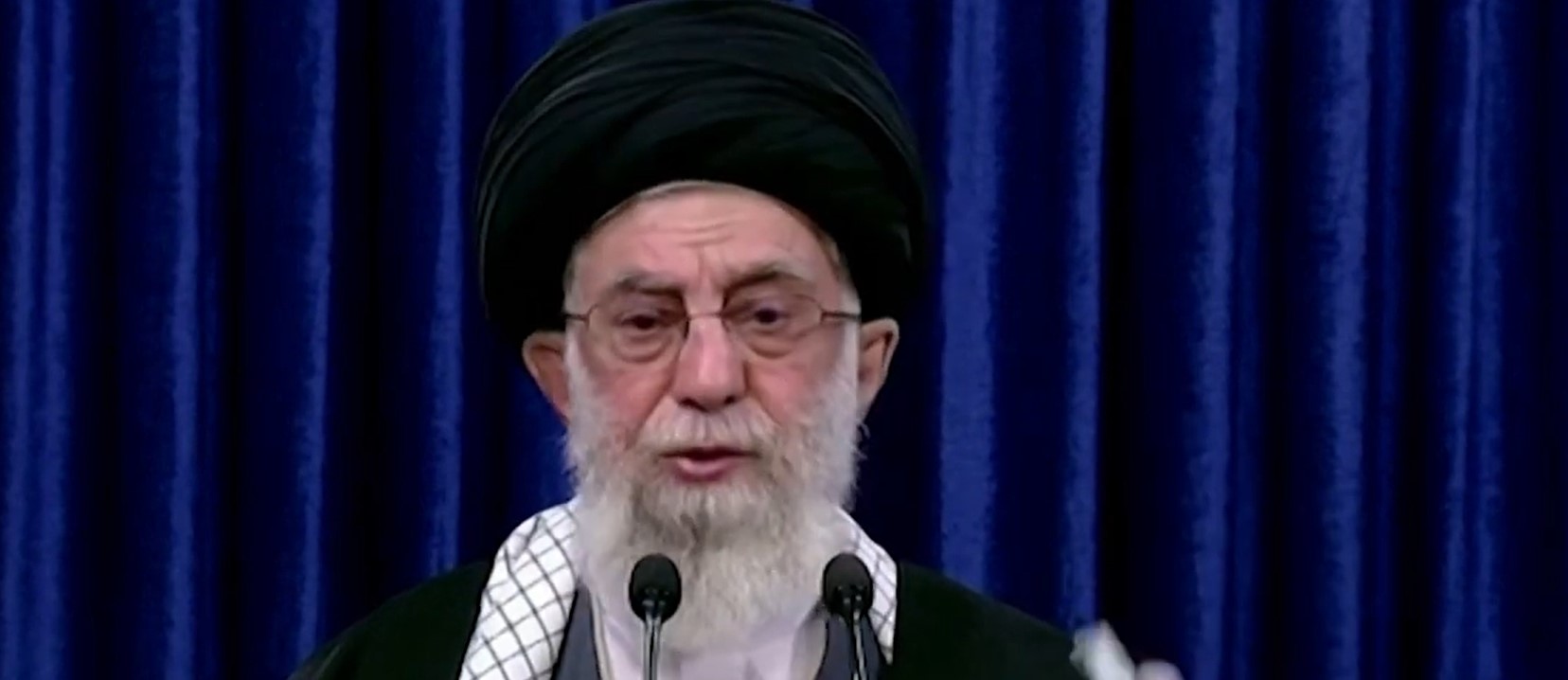Commentary: Big Tent Ideas
SHOSHANA BRYEN: The Results of Biden’s Policy Toward Iran Are Now Evident

Screen Capture/VOA
The security results of Biden administration policy toward Iran are now evident.
While the United States reiterated its support of Israel if a full-blown war breaks out with Hezbollah, Gen. Charles Brown, the chairman of the Joint Chiefs of Staff, warned over the weekend that the U.S. would have a hard time doing it. Iran is likely to be more pro-active on behalf of Hezbollah than on behalf of Hamas, he said, “particularly if they felt that Hezbollah was being significantly threatened,” adding that the lethality of the weapons Iran supplies to its proxy will also make it more difficult for the U.S. to provide aid.
While acknowledging Israel’s right to defend itself, he cautioned Israel “to think about the second order of effect of any type of operation into Lebanon” and “how it impacts not just the region, but how it impacts our (American) forces in regions as well.”
Gen. Brown states the obvious. He is correct that Hezbollah is more important to Iran than is Hamas. It is the retaliatory force if Israel strikes Iran at a certain level. He is also correct that the impact of Israel’s defense policies are felt by the U.S. — as the impact of American defense choices are felt by Israel. He did not mention the impact of the relative decline in U.S. defense procurement, but that matters as well.
This is what happens at the end of the line of appeasement – which is a political, not a military set of choices.
In February 2021, the administration released to Iran $1 billion in frozen assets held by South Korea and lifted the terror designation from Iranian-sponsored Houthi rebels. In 2022 came the “Maritime Border deal” with Lebanon intended to make Hezbollah a “responsible stakeholder.” In the summer of 2023, the U.S. weighed in publicly on Israel’s civil protests at the same time the White House bragged that it had given more than $315 million to the Palestinians in 2023 — and nearly a billion dollars since the administration took office, ignoring Israel and the bipartisan U.S. Taylor Force Act.
The apparent withdrawal of firm American support for Israel, coupled with the suggestion that the IDF would not be a cohesive fighting force, had an impact on the thinking of Hamas. And Iran. And October 7.
The IDF proved well able to do its job and the initial U.S. response was strong.
But in short order, President Joe Biden said Israel was “over the top.” Secretary of State Antony Blinken announced that the U.S. would change its policy toward Israel if it doesn’t “adequately address” the humanitarian crisis in Gaza. The famine — you know, the famine that wasn’t.
President Biden signed an executive order to impose sanctions on four West Bank Jews and initiated an investigation of an Israeli defense company — small matters, but with the implied threat of more.
For Iran, Biden extended the oil sanction waivers — allowing Iran to sell oil to China — and declined to veto the expiration of the UN embargo on Iran’s production and sale of ballistic missiles. He also declined to veto a UN Security Council Resolution that called for a ceasefire in Gaza without condemning Hamas and called for the release of Israel’s hostages only after the ceasefire was in place.
So back to Gen. Brown and American forces.
The Pentagon has announced the departure of the aircraft carrier USS Dwight D. Eisenhower from the Red Sea – where it had ostensibly protected international shipping from Iranian-supported Houthi terrorists. It will be replaced – after a while – by the USS Theodore Roosevelt, currently in the Pacific. The Theodore Roosevelt will head out of the Pacific region in about a week and will sail, slowly, toward the Middle East. There is no projected date for its arrival.
At the same moment, Iran’s face-to-the-West, Qatar, elevated by the Biden administration to the position of “Major Non-NATO Ally,” announced that the US cannot use the American airbase there to strike Iran. Ditto Kuwait.
Wasting no time, the Houthis targeted another ship after sinking one earlier in the week. They missed this one – but the absence of a U.S. aircraft carrier must clearly make life seem easier for the terrorists and their master, Iran.
Back to Israel.
Hezbollah is conducting an unprovoked war over an internationally recognized border; Iran is its partner. Whatever action Israel finds necessary to protect the citizens of the north, U.S. help will surely be appreciated — as are the president’s words. But the administration is still urging “de-escalation” and Hezbollah has little reason to agree.
And if, for example, Iran were to chose to attack Israel directly as it did a few months ago, an American military response against Iran would not be out of line —
but if the nearby air bases are off limits and the aircraft carrier is gone, with what and from where would the U.S. strike?
Shoshana Bryen is Senior Director of the Jewish Policy Center and Editor of inFocus Quarterly magazine.
The views and opinions expressed in this commentary are those of the author and do not reflect the official position of the Daily Caller News Foundation.
(Featured Image Media Credit: Screen Capture/VOA)
All content created by the Daily Caller News Foundation, an independent and nonpartisan newswire service, is available without charge to any legitimate news publisher that can provide a large audience. All republished articles must include our logo, our reporter’s byline and their DCNF affiliation. For any questions about our guidelines or partnering with us, please contact [email protected].

